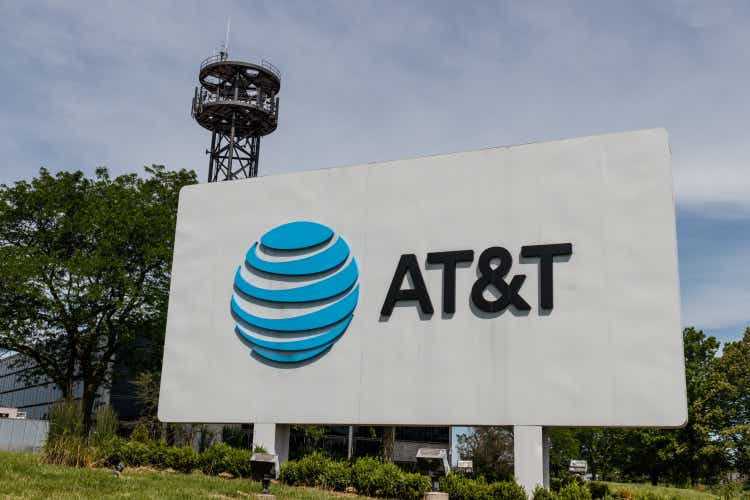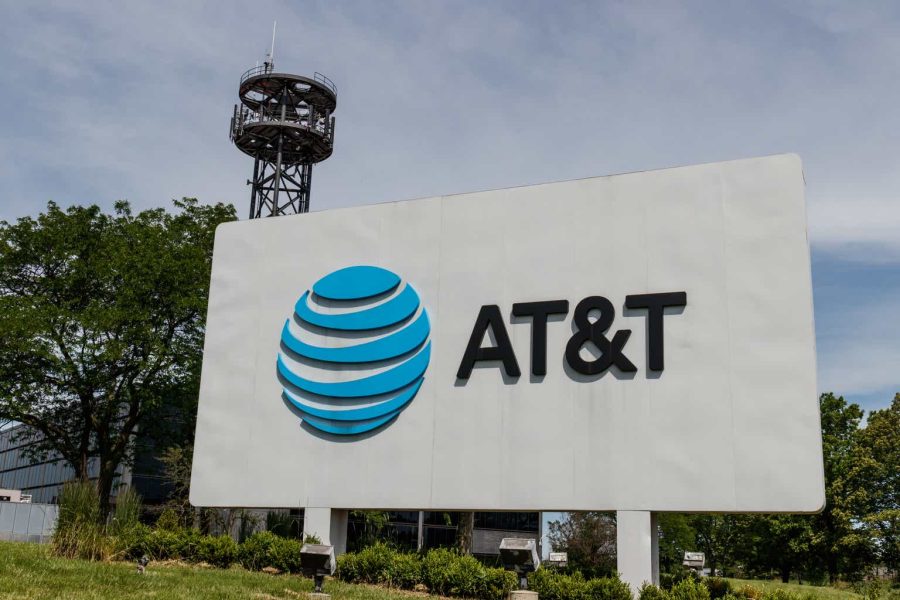Summary:
- AT&T projects significant growth with adjusted EPS reaching $2.07 in 2025 and double-digit growth by 2027.
- Apple faces a $995 million lawsuit in the U.K. over App Store fees, while South Korea’s won stabilizes after political turmoil.
- October job openings increased to 7.744M.
jetcityimage
Listen below or on the go on Apple Podcasts and Spotify.
The telecom also outlines plans for $40B return to shareholders. (0:15) Job openings rise. (2:34) South Korean assets whipsaw amid martial law declaration. (4:48)
This is an abridged transcript of the podcast.
Our top story so far. AT&T (NYSE:T) expects double-digit percentage growth in adjusted EPS and free cash flow of more than $18 billion in 2027. The telecom updated guidance as it embarks on a multi-year strategic plan highlighted by continued profitable 5G and fiber subscriber growth.
It projects adjusted EPS, excluding DIRECTV, of $1.97 to $2.07 (consensus estimate: $2.27) in 2025, accelerating to double-digit percentage growth in 2027. Free cash flow, excluding DIRECTV, is estimated at more than $16 billion in 2025, with annual growth of around $1 billion.
For this year, AT&T raised the low end of expected adjusted EPS to $2.20 to $2.25 (consensus estimate: $2.21).
The wireless carrier unveiled a strategy to expand its fiber broadband network to 50 million+ total locations by the end of 2029 and complete the modernization of its 5G wireless network with open technology by 2027.
It further expects improved financial performance to support $40 billion+ of anticipated shareholder returns through dividends and share repurchases over the next three years, including an initial share repurchase authorization of $10 billion that management expects to complete by the end of 2026.
The company expects this plan to provide $50 billion+ of financial capacity over the next three years, largely through organic growth, and return $40 billion+ of this financial capacity. The plan would result in $20 billion+ in total dividend payments, with capacity for about $20 billion in share repurchases from 2025-2027.
AT&T expects to maintain its current annualized common stock dividend of $1.11 a share.
In today’s trading, we draw inspiration from NYSE trading floor legend Art Cashin, who sadly passed away on Monday. His daily Cashin’s Comments showcased his encyclopedic knowledge of markets and history.
So, with respect, 77 years ago today, “A Streetcar Named Desire” made its debut on Broadway.
But on Wall Street there seems to be no desire to buy or sell stocks, with the major averages little changed.
As for bond yields, the direction of the streetcar is south on the short end and north on the long end.
Audiences got a jolt when they saw Brando on stage, and the market got its own JOLTs report this morning.
Ahead of Friday’s payrolls report, the BLS said October job openings increased to 7.744 million from 7.372 million in September and topped the 7.49 million consensus. The prior month’s number was revised down from 7.443 million.
As a result, the job openings rate edged up to 4.6% from 4.5% prior. The quits rate also increased, up to 2.1% from 1.9%.
While a surprise to the upside for openings, economists said it wasn’t enough to change the overall picture of a softening labor market. The odds of a quarter-point Fed cut later this month stayed around 70%.
Among active stocks today, despite trying to prevent it, Apple (AAPL) will now have to deal with a class action lawsuit in the U.K. from developers in the country over what they say are anti-competitive taxes from the App Store.
Developers pay as much as 30% to Apple in commissions from their apps, and the tech giant could wind up having to repay as much as $995 million in fees to roughly 13,000 U.K. developers, according to Bloomberg.
Even as an independent special committee has found no wrongdoing, investment firm J.P. Morgan said it is staying “sidelined” on Super Micro Computer (SMCI) until it gets better visibility into compliance issues.
Analyst Samik Chatterjee said: “In our view, the next key watch points for investors to monitor include: whether the new independent auditors, BDO, accept the findings of the Special Committee or decide to undertake their own independent review; and whether Nasdaq supports Super Micro’s request for an extension of time to regain compliance with the Nasdaq continued listing requirements.’
And ZJK Industrial (ZJK) shares rocketed nearly 150% after the company announced a significant advancement in its collaboration with Nvidia (NVDA) focused on advanced liquid cooling systems.
ZJK, which specializes in the production of precision fasteners, structural parts, and other precision metal parts, received a request to produce samples for one of Nvidia’s upcoming liquid cooling manifold projects.
In other news of note, South Korean assets saw chaotic trading after President Yoon Suk Yeol declared a state of emergency and martial law in a sudden late-night address to the country. That was soon met with opposition from lawmakers who voted early on Wednesday local time to block the move.
South Korea’s parliament, with 190 of its 300 members present, passed a motion requiring the martial law declaration to be lifted. The speaker of parliament declared the martial law announcement invalid.
South Korea’s won (USD:KRW) slowly started paring back some losses after falling dramatically against the U.S. dollar. The greenback is up 1.3% against the won, after having been up as much as 2%.
Yoon accused the left-wing bloc that controls parliament of plotting with North Korea against the state.
And in the Wall Street Research Corner, Oppenheimer technicians feel bullish about the Russell 2000 (IWM), with the three-year rate of change for the small-cap index “curling into positive territory” after one of its worst performing periods on record.
Since 1928, December has been the best-performing month of the year for momentum stocks, as investors often sell losing stocks to offset capital gains tax liability. January is the worst-performing month for the momentum factor “because the prior year’s ‘losers’ are bought back—this is the January Effect.”
“We believe investor complacency (in large cap) is a yellow light balanced by market positives elsewhere,” they said.
Among the stocks they highlighted are Shake Shack (SHAK), Clearway Energy (CWEN), Genius Sports (GENI), and Turtle Beach (HEAR). See all the names in our story on Seeking Alpha.
Editor’s Note: This article covers one or more microcap stocks. Please be aware of the risks associated with these stocks.

